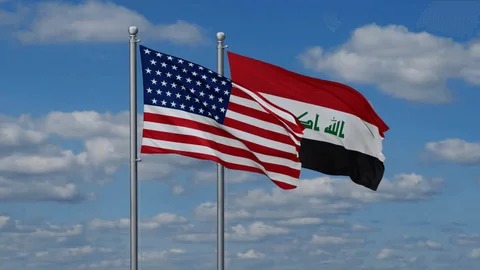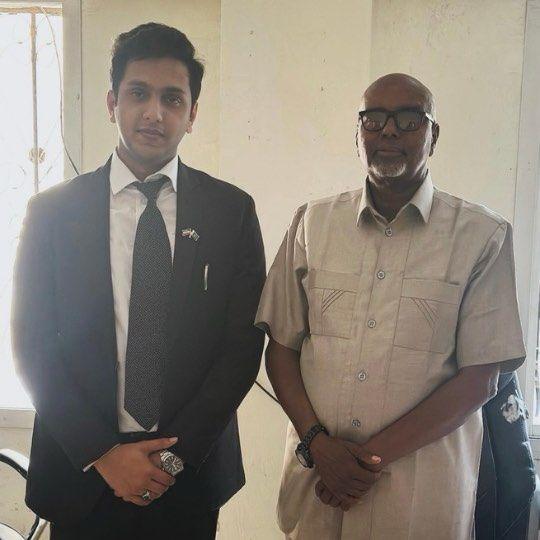After more than two decades, Congress is taking a symbolic step to formally close the chapter on the Iraq War. In October 2025, the Senate vote unanimously to repeal the 1991 and 2002 authorizations for the use of military force (AUMFs), following a similar House vote last month. Proponents say the move restores war powers to Congress and recognizes Iraq today as a strategic partner rather than an occupied territory.
Senators Tim Kaine (Democrat-Virginia) and Todd Young (Republican-Indiana) jointly introduced the amendment to the National Defense Authorization Act. It sailed through by voice vote, with no objections, as part of the broader annual defense bill. Supporters in both chambers argue that repealing the legal basis for past interventions helps prevent future overreach by executive power.
Yet while the repeal is being celebrated in Washington, observers in Iraq and beyond view it with caution. Many warn that the legislation is chiefly symbolic, since the 2001 AUMF, an authorization passed after the September 11 attacks allowing the president to use “all necessary and appropriate force” against those responsible, still intact, and is broad enough to justify U.S. military actions in Iraq and other countries under the rubric of counterterrorism. Some critics say the new law shifts how overseas military actions are justified rather than constraining them.
In Iraq, parliamentary voices welcomed the vote as recognition of restored sovereignty. At the same time, analysts cautioned that while the repeal may limit future abuses, it is primarily rhetorical unless accompanied by real changes in U.S. military posture.
Indeed, the U.S. has already begun physical withdrawal. Under a 2024 agreement with Baghdad, coalition forces were to scale back their presence by September 2025. In October 2025, the Pentagon confirmed that the drawdown had started. Some bases in Baghdad and at Ain al-Asad in western Iraq have been vacated. Pentagon spokesman Sean Parnell said the withdrawal is part of transitioning to a lasting U.S.-Iraq security partnership with continued coordination to ensure stability.
Media reported that only handful of American advisers remain at the Joint Operations Command, with some personnel redeployed to Erbil or leaving the country entirely. He added that no precise count has been disclosed.
The drawdown, however, does not automatically equate to full U.S. disengagement. Legal authority from the 2001 AUMF still allows U.S. administrations to launch unilateral actions in Iraq if they deem them counterterror operations. Observers note that while 1991 and 2002 authorizations had centered on Iraq specifically, the 2001 AUMF is generically phrased and often used globally. The tension between symbolism and practical change is visible in Iraq’s domestic politics. An episode in mid-October stirred public debate when reports suggested Iraqi Prime Minister al-Mohammed Shia al-Sudani might attend a Gaza summit alongside Benjamin Netanyahu. The mere possibility triggered fierce backlash in Iraqi media and from Shi’a political leaders. Muqtada al-Sadr, a powerful cleric and political figure, called any such engagement a “disgrace” under Iraq’s laws criminalizing relations with Israel.
While the summit invitation was later denied or retracted, the episode underscored ongoing challenges in Baghdad’s foreign posture. Some of al-Sudani’s allies later claimed he was instrumental in blocking Netanyahu’s participation; an assertion intended to deflect criticism and maintain Iraq’s image of sovereignty.
For Iraq, the repeal in Washington and the drawdown on the ground carry both promise and uncertainty. On paper, the removal of Iraq-specific authorizations suggests a transition in U.S.–Iraq relations from occupier/occupied to partner/sovereign. In practice, Washington maintains legal leeway via remaining AUMFs, and military withdrawal is ongoing but not absolute.
Regional observers are also watching closely. Iranian-backed factions within the Popular Mobilization Forces have framed the repeal as a victory for the ‘resistance axis,’ even as U.S. officials insist their presence was shifting, not ending. Gulf capitals, meanwhile, fear that too rapid a pullback could leave Iraq vulnerable to renewed militia fragmentation or ISIS resurgence. Ankara, already extending deeper into northern Iraq under the pretext of countering the PKK, may also interpret the U.S. exit as tacit permission to expand its own footprint. In this sense, the departure of one power hardly guarantees the absence of others.
Whether Iraq can capitalize on symbolism to assert genuine independence depends on how it handles internal divisions, militia power, foreign influence, and its evolving security relationship with the U.S. The legislative repeal may mark a turning point, but the real test is whether it changes the balance of power, not just the legal wording.





